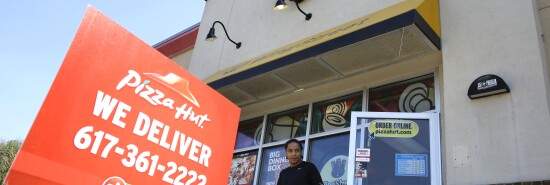
California’s war on fast food
Washington Examiner
Video Embed
California was once a leader in job creation, but the state actually lost jobs in 2023. Because of a minimum wage hike scheduled for April, expect what was once the Golden State to lose more jobs in 2024.
While the rest of the nation is enjoying job growth and falling unemployment, California’s jobless rate has risen steadily since August, and at 4.9% is now more than a point higher than the national average of 3.7%.
BIDEN’S INFRASTRUCTURE BLUNDER
The April minimum wage hike is the result of a yearslong battle between powerful unions in Sacramento and big fast-food companies. California Democrats first signed legislation that created a council empowered to micromanage how fast-food restaurants were run, including the power to set schedules and require a $22-an-hour minimum wage.
The food chains fought back by bypassing union-controlled Sacramento with a ballot initiative overturning the legislation. After the chains got enough signatures to qualify for the ballot, California Democrats came to the table to negotiate. The ultimate compromise requires a $20 minimum wage for chains with 60 or more locations in the state. The council, with reduced powers, would have the authority to raise the hourly minimum wage by at least 3.5% each year.
The jump from $15.50 an hour, which is the current minimum wage, to April’s $20 is almost 30%. The National Owners Association, an advocacy group of McDonald’s franchisees, estimates that this will cost the average outlet $250,000 a year in extra wages.
Some franchises are already changing their business models to fit the new expensive regulations. Pizza Hut locations throughout the state will fire delivery drivers and rely on apps such as DoorDash and Grubhub. This will, ironically, boost the gig economy with which California is also at war.
Other franchises will try to avoid increased labor costs with technologies that allow them to replace cashiers with computer kiosks. The result will be higher wages for workers who do not lose their jobs, but also more people out of work overall.
CLICK HERE TO READ MORE FROM THE WASHINGTON EXAMINER
Fast-food stores will also raise prices, adding to inflation that has pushed consumer costs higher for months. McDonald’s executives say that as a result, diners who make less than $45,000 a year have been visiting outlets less than before. California is forcing restaurants to raise prices, so expect people to eat at them less.
California advertises itself as the “freedom state,” but its laws mean less freedom of contract for employers and workers, fewer food options, and fewer jobs.
